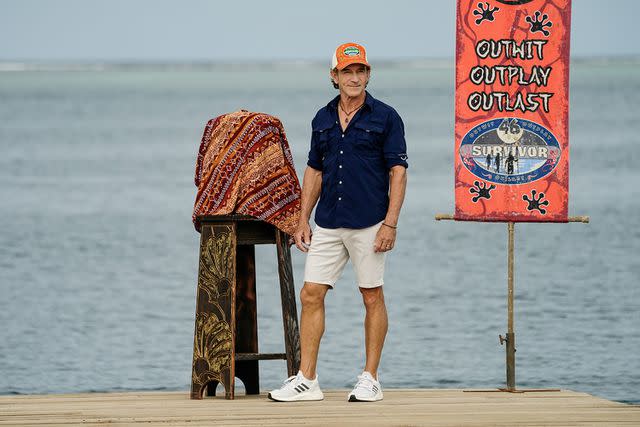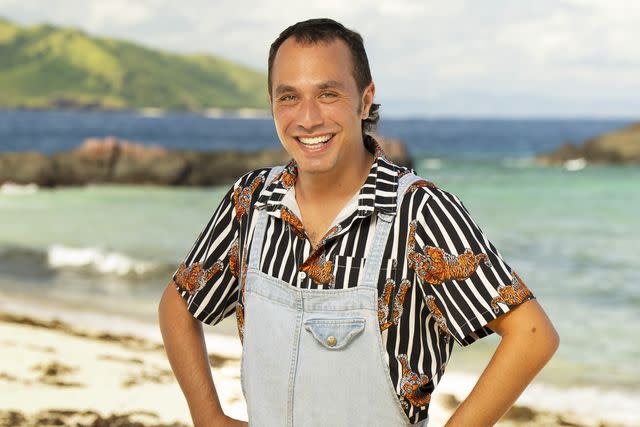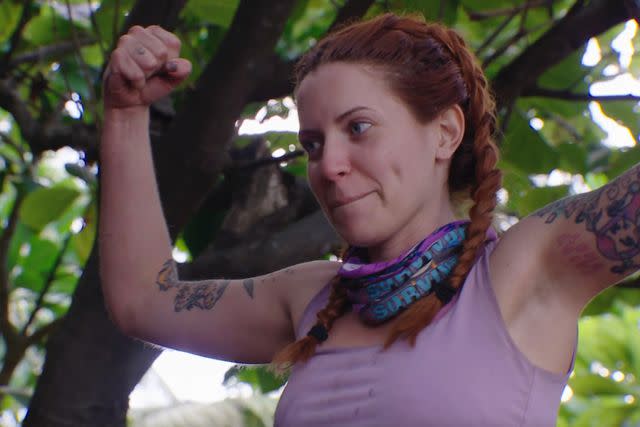Jeff Probst says psychologists were contacted after “Survivor” panic attack
The host also explains why some players from 15 years ago would not make the cut today.
It was an intense episode of Survivor 46 this week as two players were eliminated after the tribe was split into teams for the immunity challenge, and each side had to vote someone out.
But the drama began the night before, and not just because Venus Vafa was falsely accusing Soda Thompson of voting for her at Tribal Council. After the tribe went to sleep, Ben Katzman woke up “in panic mode.” Katzman, who has suffered from panic attacks in the past, experienced what he described as 50 seconds of hysteria. Luckily, tribe mate Kenzie Petty — whose mother and sister also suffer from anxiety — was there to help calm Ben down until the panic subsided.
But there was more help available had Ben not immediately rebounded, host and showrunner Jeff Probst explained on the latest episode of the On Fire with Jeff Probst podcast. When cohost Jay Wolff brought up the incident and asked if Probst was made aware of what had happened during filming, the host responded, “Yes, I do hear and I did hear. And the first question is always: How severe? In this case, how severe of a panic attack?”

Robert Voets/CBS
Jeff Probst on'Survivor 46'Probst is well aware of the seeming incongruity of being so concerned with player safety while designing a game based on putting people through brutally taxing conditions. “It might seem counterintuitive that we as producers admit that we build a game that is designed to break you down to a point that requires you to dip into your physical and emotional reserves to see what you're made of,” he says on the podcast. “Then how can our number one priority be the physical and mental health safety of our players? But it is. It's number one.”
That is why producers lean so heavily on the Survivor medical team — the same team that already pulled one player, Randen Montalvo, from the game as a safety precaution due to a pinched nerve. And it seems the show’s mental health doctors were contacted after Ben’s episode.
“We not only have medical doctors on location, we also have our mental health specialists on location, our psychology team,” says Probst. “So, in this case, we let our psychologists know what happened, and if there was even a slight concern that Ben was in real trouble, we would intervene in whatever way was most appropriate."

Robert Voets/CBS
Ben Katzman of 'Survivor 46'Probst continues: "I'm very proud of our aftercare program for both medical and mental health issues. I don't know of any show in our genre who does what we do. We follow through, and that support continues for as long as a player needs it. And watching it within the episode, I'm obviously moved and very satisfied that Ben's community — in this case, Kenzie, specifically — took care of their own. It's a very big shift in the game from, say, 15 years ago where this might not have happened.”
When asked by Wolff what was so different 15 years ago, Probst elaborated, and also explained why many of the players that were on earlier seasons of Survivor would not make in the new era of the program. “Number one, casting the types of people we are putting on the show,” the host says in terms of what has changed. “A lot of players, and this is not any disrespect, but there are players from 15 years ago we would not even interview today. They were perfect for that time, but today, we want more emotional depth that you understand and have compassion for people. And that's what we just saw.”
For Probst, having a different type of contestant feeds into the new tone of Survivor. “Our storytelling is aligned with that. Our emphasis has shifted from just a pure game approach of ‘Who will be voted out tonight?’ to a much more complex and emotionally layered adventure and life experience.”

CBS
Kenzie Petty on 'Survivor 46'Finally, the host says it is simply a sign of the times. “I think the last bit is the culture. This gets overlooked, but Survivor has always been a reflection of our culture. And if you go back and look at our past 23 years, you will see us reflected in every season and you will see the shift and growth of our culture with every season because things that happened back in those early seasons, they would never happen today. And things that are happening today we couldn't have imagined happening 15 years ago.”
In the end, Probst is proud of how it was handled on the island, and says more help was available if needed. “Mental health is a giant problem in our country. You just heard Ben say, 'I could have gone back to the fifth or sixth grade ... this would've been handled where kids pick on each other.' It's a huge thing that we're trying to deal with right now, and we take it very seriously on Survivor. “
To hear more from the host and showrunner about the latest episode, check out On Fire with Jeff Probst.
Sign up for Entertainment Weekly's free daily newsletter to get breaking TV news, exclusive first looks, recaps, reviews, interviews with your favorite stars, and more.
Related content:
Soda Thompson explains 'complicated' Survivor relationship with Venus
Tim Spicer 'surprised, shocked, and hurt' by Survivor 46 blindside
Survivor 46 exclusive deleted scene shows Kenzie worried about the upcoming challenge
Survivor 46 players reveal their merge tribe name nominations
Moriah Gaynor reveals what we did not see at that Survivor 46 Tribal Council
Jeff Probst explains why Survivor films people going to the bathroom together
Hunter shares unseen Nami tribe dynamics in exclusive mid-game Survivor 46 interview
Read the original article on Entertainment Weekly.

 Yahoo Finance
Yahoo Finance 